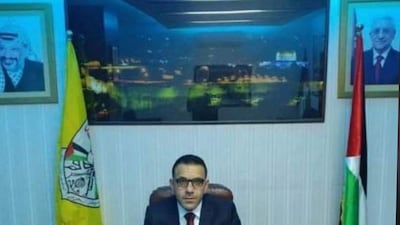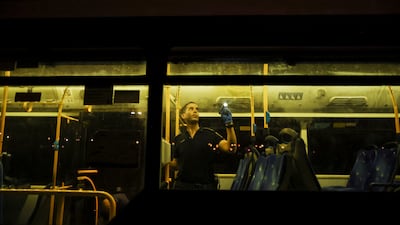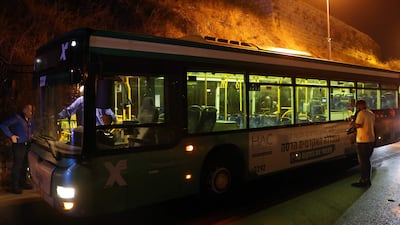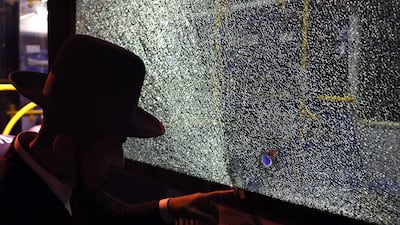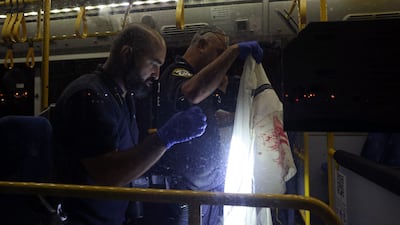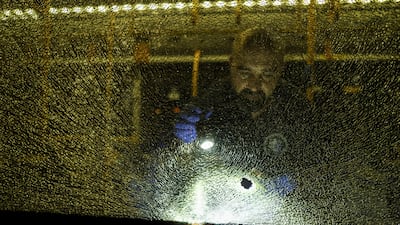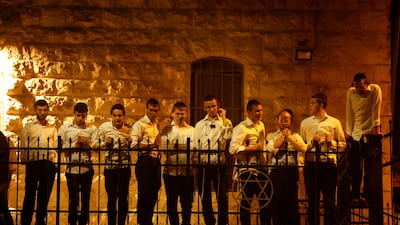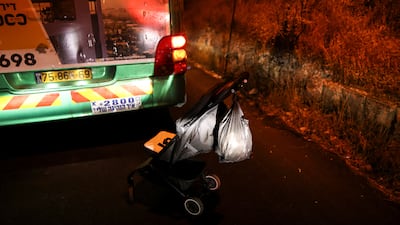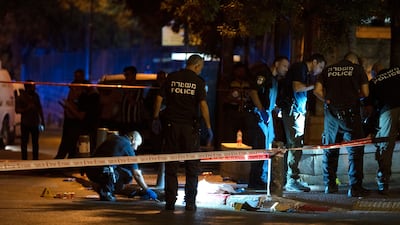A senior Palestinian official says he has established a record for the number of arrests by Israeli police.
Tensions between Israel and the Palestinians have been high for decades over the status of Jerusalem and Al Aqsa Mosque compound.
Adnan Ghaith, who in 2018 was appointed Mayor of Jerusalem by Palestinian President Mahmoud Abbas, said he had been arrested 35 times since assuming office.
“My freedom is restricted by four administrative decisions issued by Israel: I’m banned from visiting the occupied West Bank, entering areas in East Jerusalem, communicating with more than 50 Palestinian officials and individuals, chiefly President Mahmoud Abbas, and banned from taking part in public seminars,” Mr Ghaith told The National from his house in the Silwan neighbourhood of occupied East Jerusalem.
“The span of the Israeli detention orders against me in the past four years have varied between being kept in prison for a few days or hours. Sometimes I was confined to solitary confinement in a very tiny cell where I could barely stand.”
He said the latest detention took place in July on a charge of “violating the sovereignty of the capital of Israel”.
Mr Ghaith, 46, said he was released on bail of 25,000 Israeli shekels ($7,350) and was not allowed to leave his house, with written statements from three guarantors to enforce the house arrest.
'I just want to live like normal people'
“One of the three guarantors must be around 24/7. My wife was up to it, but she and two other friends will be fined ILS30,000 each if I violate my release conditions," he said.
“I can’t take my young children to school every morning. I can’t attend weddings or funerals. I can’t go shopping. I just want to live like normal people."
Hailed by his followers and supporters as one of the voices of Palestinian nationalism, Mr Ghaith said the heavy symbolism his repeated arrests showed the message Israel wanted to convey to the outside world.
Israel wants to "obliterate any symbol of the Arabic and Islamic identity" from Jerusalem, he said.
Violence between Israeli security forces and Palestinians in the city has increased in recent months, especially around Al Aqsa Mosque and Sheikh Jarrah neighbourhood, which has been at the heart of tensions between Israeli settlers and Palestinians.
The decades-old legal battle over the eviction of Palestinian families from Sheikh Jarrah in favour of Israeli settlers has become a microcosm of the tensions between Palestine and Israel.
Israel captured East Jerusalem, including the Old City, from Jordan during the Arab-Israeli War of 1967 and annexed the area.
Al Aqsa Mosque compound has been a focal point of unrest for decades. The violence last year was one of the factors that led to a conflict between Israel and militant groups in Gaza.
Hamas, which controls Gaza and is a rival of the Fatah movement in the occupied West Bank, launched rocket attacks and Israel responded with air strikes on the enclave. The conflict lasted for 11 days, killing at least 256 people, including 13 in Israel.
Among the victims were 68 children in Gaza.
One of Mr Ghaith’s sons was seriously injured on May 7 last year when Israeli riot police entered Al Aqsa Mosque compound to disperse a protest against the eviction of Palestinians from Sheikh Jarrah.
In pictures — bus attack in Jerusalem
Israel said its forces pre-empt attacks by Palestinians taking shelter at the holy site, saying they were collecting stones and rocks to attack soldiers.
Mr Ghaith said his son sustained a skull fracture when he was hit by an Israeli rubber-coated metal bullet.
“He underwent multiple surgeries and was later terminated from his job as a security guard at one of the supermarkets in Israel as he was charged by the Israeli authorities with endangering national security after joining Al Aqsa protest and now has a criminal record,” Mr Ghaith said.
The National has asked the Israeli police for a comment on his case and his accusations of the Israeli authorities. A spokesperson said in a statement: "The suspect was arrested and taken in for questioning by the Israel Police for violating a Major General's order, after evidence gathered revealed that he had violated this order in a large number of cases. The investigation reveals that the suspect acted in a covert manner in order to commit the crimes he is accused of.
"After significant evidence was established, an indictment was filed against the suspect for violating a legal order, and the conditions of his release -- which included house arrest -- were determined by a court. The Israel Police will continue to enforce the law and operate against anyone who violates it."
Israel has launched in recent months a major security operation known as Break the Wave. It said on Monday that the operation led to the arrest of 1,500 people and thwarted hundreds of attacks.
It came in response to a wave of attacks against Israelis in Israel and the occupied West Bank in recent months.
From mid-March to early May, 19 people were killed in such attacks, Israeli official data has said.
